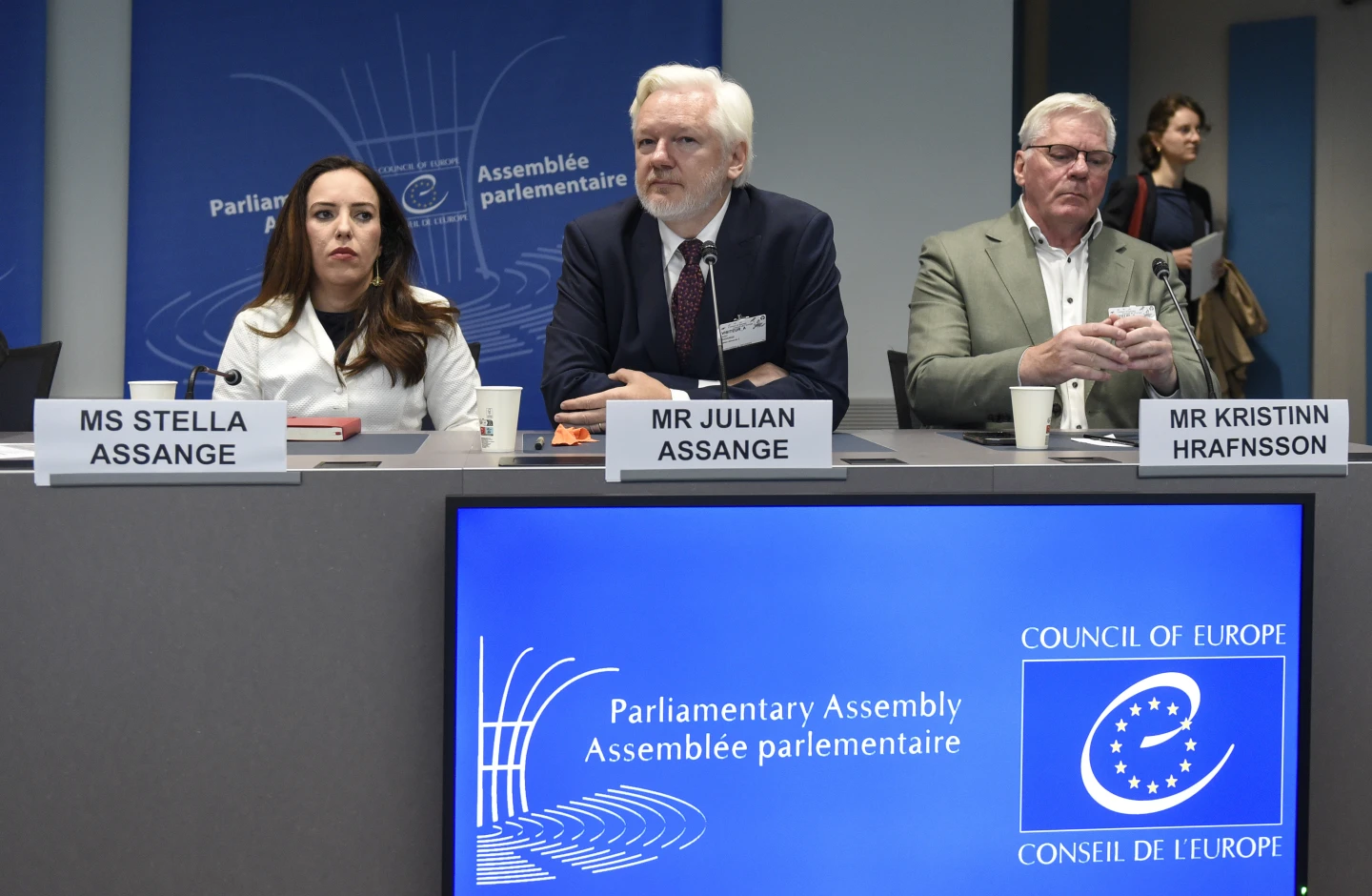
WikiLeaks' founder Julian Assange, his wife Stella Assange and Wikileaks Editor-in-Chief Kristinn Hrafnsson attend a hearing on Julian Assange's detention and conviction, and their effect on human rights before the Committee on Legal Affairs and Human Rights of the Parliamentary Assembly of the Council of Europe (PACE) in Strasbourg, France. October 1, 2024.
Paris, October 1 (RHC)-- WikiLeaks founder Julian Assange said on Tuesday that he was freed after years of incarceration because he “pled guilty to journalism.”
Assange gave evidence of the impact of his detention and conviction to the legal affairs and human rights committee of the Parliamentary Assembly of the Council of Europe in Strasbourg, France. The Parliamentary Assembly includes lawmakers from 46 European countries.
Assange was released in June after five years in a British prison after he pleaded guilty to obtaining and publishing U.S. military secrets in a deal with Justice Department prosecutors that concluded a drawn-out legal saga. Prior to his time in prison, he had spent seven years in self-imposed exile in the Ecuadorian Embassy in London, where he claimed asylum on the grounds of political persecution.
“I am not free today because the system worked,” Assange said in his first public remarks since he was released. “I am free today after years of incarceration because I pled guilty to journalism.”
He added: “I pled guilty to seeking information from a source. I pled guilty to obtaining information from a source. And I pled guilty to informing the public what that information was.”
The transition from years of confinement in a maximum security prison to addressing the European parliamentarians has been a “profound and a surreal shift,” Assange said as he detailed the experience of years of isolation in a small cell.
“It strips away one’s sense of self, leaving only the raw essence of existence,” he said, his voice cracking while he offered an apology for his “faltering words” and an “unpolished presentation.”
“I’m not yet fully equipped to speak about what I have endured — the relentless struggle to stay alive, both physically and mentally,” Assange said.
The Australian internet publisher was accused of receiving and publishing hundreds of thousands of war logs and diplomatic cables that included details of U.S. military wrongdoing in Iraq and Afghanistan. His activities were celebrated by press freedom advocates, who heralded his role in bringing to light military conduct that might otherwise have been concealed.
Among the files published by WikiLeaks was a video of a 2007 Apache helicopter attack by American forces in Baghdad that killed 11 people, including two Reuters journalists.
“I am not free today because the system worked,” Assange said in his first public remarks since he was released in June. “I am free today after years of incarceration because I pled guilty to journalism.” And he added: “I pled guilty to seeking information from a source.”
Assange was released after five years in a British prison after he pleaded guilty to obtaining and publishing U.S. military secrets in a deal with Justice Department prosecutors that concluded a drawn-out legal saga.

